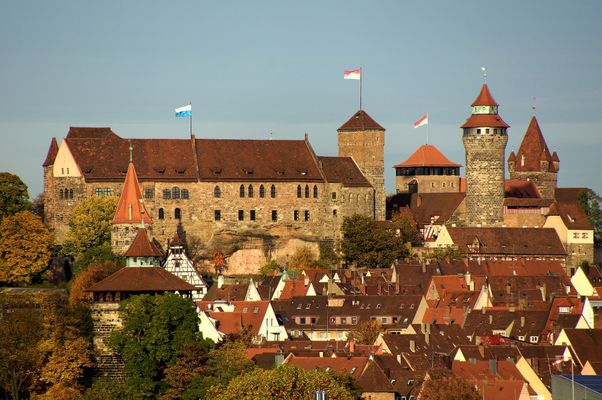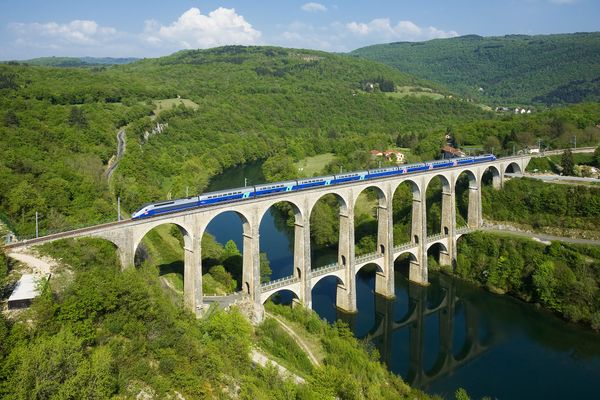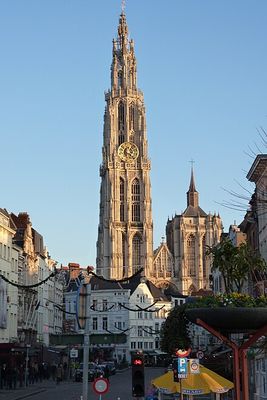
From Wikipedia: The Grand Duchy of Luxembourg (Luxembourgish: Groussherzogtum Lëtzebuerg, French: Grand-Duché de Luxembourg, German: Großherzogtum Luxemburg), is a landlocked Benelux country bordered by Belgium, France and Germany at the crossroads of Germanic and Latin cultures. It is the only Grand Duchy in the world and is the second-smallest of the European Union member states by area. A founding member of the European Community of Coal and Steel, Luxembourg has produced a number of prominent EU level politicians.
find another country
Bock (Luxembourg)

[from en.wikipedia.org]: The Bock is a promontory in the north-eastern corner of Luxembourg City's old historical district. Offering a natural fortification, its rocky cliffs tower above the River Alzette, which surrounds it on three sides. It was here that Count Siegfried built his Castle of Lucilinburhuc in 963, providing a basis for the development of the town that became Luxembourg. Over the centuries, the Bock and the surrounding defenses were reinforced, attacked, and rebuilt time and time again as the armies of the Burgundians, Habsburgs, Spaniards, Prussians, and French vied for victory over one of Europe's most strategic strongholds, the Fortress of Luxembourg. Warring did not stop until the Treaty of London was signed in 1867, calling for the demolition of the fortifications. Ruins of the old castle and the vast underground system of passages and galleries known as the casemates continue to be a major tourist attraction.

Vianden Castle

[from en.wikipedia.org]: Vianden Castle, located in Vianden in the north of Luxembourg, is one of the largest fortified castles west of the Rhine. With origins dating from the fourth century as a Roman outpost and the 10th century, the more familiar castle form was built in the Romanesque style from the 11th to 14th centuries. Gothic transformations and trimmings were added at the end of this period. A Renaissance mansion was added in the 17th century but thereafter the castle was allowed to fall into ruins. It has, however, recently been fully restored and is open to visitors. Vianden Castle is widely regarded as the best castle to visit in Luxembourg.

Luxembourg (city)
Average temperatures
Jan
3.1°C-1.6Precipitation: 76.6 mm
Feb
4.7°C-1.3Precipitation: 62.5 mm
Mar
9.1°C1.6Precipitation: 69.1 mm
Apr
13.3°C4.4Precipitation: 58.2 mm
May
17.8°C8.4Precipitation: 78.5 mm
Jun
20.7°C11.1Precipitation: 79.9 mm
Jul
23.2°C13.3Precipitation: 71 mm
Aug
22.8°C13Precipitation: 75.4 mm
Sep
18.4°C10Precipitation: 76.3 mm
Oct
13.1°C6.3Precipitation: 86.8 mm
Nov
7.3°C2.2Precipitation: 76 mm
Dec
3.9°C-0.5Precipitation: 86.7 mm

Clervaux
No climate information available.

Diekirch
No climate information available.

Echternach
No climate information available.

Ettelbruck
No climate information available.

Esch-sur-Alzette
No climate information available.

Mondorf-les-Bains
No climate information available.

Vianden
No climate information available.

Esch-sur-Sûre
No climate information available.

Schengen
No climate information available.

Land of the Red Rocks
No climate information available.









